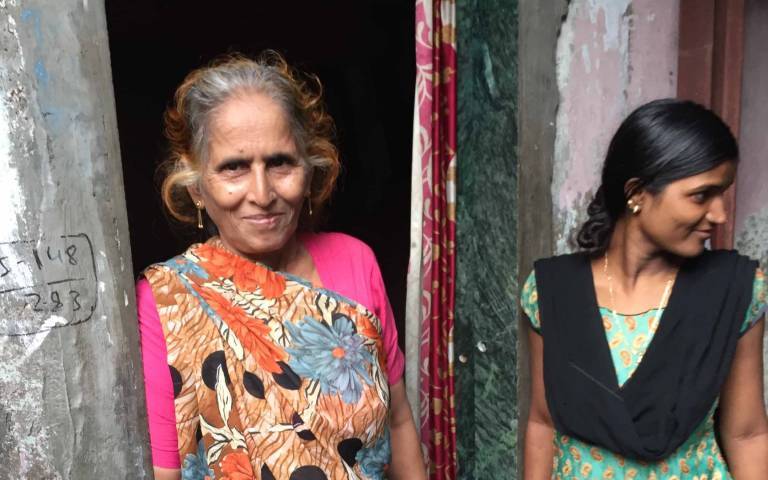Community-led solutions help tackle child malnutrition in India
An innovative programme that combines community engagement with research across three UCL faculties is designing interventions to tackle child malnutrition in India.

8 October 2020
A programme of participatory interdisciplinary research to tackle malnutrition (PANChSHEEEL*) brings together schools, front line health workers and communities in two villages in India with academics from UCL’s Great Ormond Street Hospital Institute for Child Health (ICH), Institute of Education (IOE) and UCL Civil, Environmental and Geomatic Engineering (CEGE).
“A recent survey in India showed that only one in ten children aged 6 to 23 months receives a nutritionally adequate diet and undernutrition contributes to almost half of deaths in the under-fives,” explains Professor Monica Lakhanpaul (UCL ICH), project lead.
In 2017, with support from UCL’s Global Engagement Office, Professor Lakhanpaul visited India with colleagues Dr Priti Parikh (CEGE) and Professor Marie-Carine Lall (IOE). They set out to build partnerships with community organisations and institutions to develop an integrated approach that looks at feeding practices in a wider context.
“To address what some refer to as India’s silent epidemic, we needed to consider nutrition, sanitation, hygiene and parent-child interactions in the first 1,000 days of life,” Professor Lakhanpaul explains.
Since then, the UCL team has been working closely with colleagues at the Indian Institute of Technology, Delhi, Jawaharlal Nehru University, New Delhi, Save the Children India and community organisations and schools in Rajasthan.
They assessed the environmental and engineering factors affecting nutrition and found that clean water, safe sanitation systems, clean kitchen utensils and availability of soap have a vital role to play. “We also found that other key factors such as mothers having adequate time for childcare, and consideration of other infection risks, such as family animals was also necessary,” says Professor Lakhanpaul.
“Together with our partners in India we developed integrated interventions that link health, education, environment and engineering, to optimise infant and young child feeding practices.”
The collaborative team trains community champions to engage with their communities, via schools and rural healthcare centres to ensure proposed interventions are acceptable to the people they are designed to help.
“PANChSHEEEL provides a vital platform to link expertise across diverse disciplines,” adds Professor Lakhanpaul. “It enables us to hear local voices and develop solutions together to address global challenges with global partners.”
* Participatory Approach for Nutrition in Children: Strengthening Health, Education, Environment and Engineering Linkage
 Close
Close


